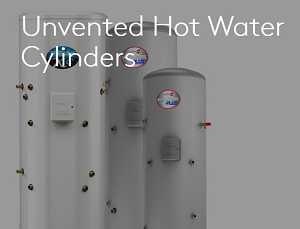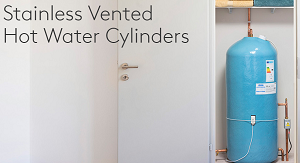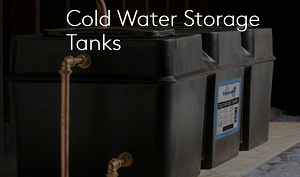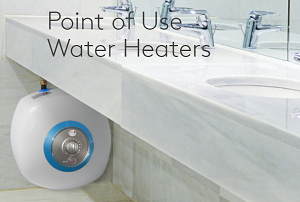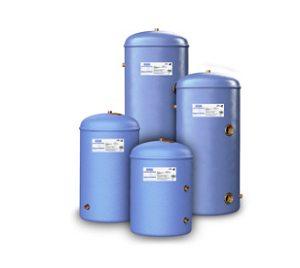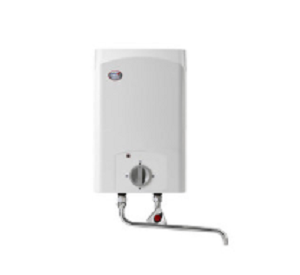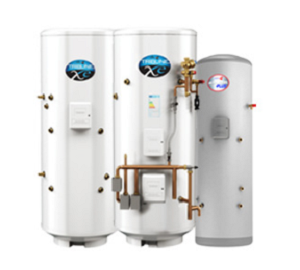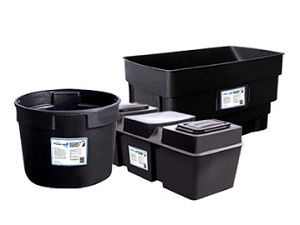KINGSPAN Hot Water Cylinders
Suppliers of: stainless steel vented hot water cylinders, stainless steel unvented hot water cylinders, copper vented hot water cylinders, copper unvented hot water cylinders, point of use hot water heaters, electric hot water heaters, cold water storage tanks, closet
Kingspan Hot Water Cylinders is a UK division of Kingspan Environmental. Kinspan Hot Water Cylinders are leading suppliers of hot water cylinders, water heatters, heat pumps and cold water storage tanks. At Kingspan, we are dedicated to providing the best products and service for our customers. With over 85 years of experience in manufacturing high quality cylinders, our commitment to our clients sets us apart from others in the marketplace.
Kingspan Hot Water Cylinders include:
Stainless unvented hot water cylinders:
A wide range of unvented Duplex stainless steel cylinders providing mains pressure hot water and greater flow rates than traditional vented units.
-
Tribune Xe Pre-Plumbed - Pre-plumbed hot water cylinders for fast installation.
-
Tribune Xe Pre-Plumbed Solar - Indirect solar cylinders factory assembled for quick and easy installation.
-
Tribune Xe Pre-Plumbed System-Fit - Pre-plumbed cylinders specifically developed for use with system boilers.
-
Ultrasteel Plus Indirect Solar - Twin coil solar cylinders with built-in thermal expansion space for use with solar thermal systems.
Copper Vented Hot Water Cylinders:
Albion Water Heaters manufacture copper vented and unvented hot water cylinders and thermal stores for domestic hot water storage in a variety of sizes. Also for renewable energy inputs, our new unvented copper hot water storage system which is a heat pump only or a solar thermal system that has the additional input from a heat pump. For commercial and industrial use, Albion manufacture a large range of open vented and unvented calorifiers in copper, stainless steel and mild steel.
-
Albion Copper Cylinders (Indirect) - Indirect hot water cylinders manufactured from high grade copper in a variety of sizes, for use with traditional gas or oil boiler.
- Albion Copper Cylinders (Direct) - These hot water storage tanks are manufactured to British Standard 1566 and are suitable for use in open vented hot water systems.
- Albion Copper Cylinders (E7) - Direct and indirect hot water storage tanks with two immersion heater bosses. These hot water storage tanks are manufactured to British Standard 1566 and are suitable for use in open vented hot water systems.
-
Albion Copper Combi - Combination direct and indirect hot water storage tanks manufactured to British Standard 3198 from high grade copper in a variety of sizes.
- Albion Copper Combi (E7) - Our combination units are available in a variety of sizes in direct and indirect versions and are manufactured to British Standard 3198. They comprise a cold water cistern and a hot water tank in a single unit eliminating the need for a cold water storage tank and removing the complication of running pipes to and from the cold water system.
- Albion Copper Indirect Twin Coil - Indirect Twin Coil cylinders for use with two heating sources, i.e. two boilers or a boiler and solar thermal input.
-
Albion Copper Horizontal Cylinder (Indirect) - Indirect horizontal cylinders manufactured from high grade copper in a variety of sizes, suitable for use in locations with limited headroom.
Kingspan Albion - Stainless Vented Cylinders:
Manufactured from Superior materials to ensure that they provide the maximum corrosion resistance, making them the most durable and long lasting cylinders of today.
- Albion Stainless Vented Direct - These hot water storage tanks are designed for use in open vented hot water systems.
- Albion Stainless Vented Indirect - These indirect vented cylinders are fitted with a rigid 28mm coil with 1” male BSP connections, making them suitable for both gravity and pumped systems.
- Albion Stainless Vented Twin Coil - These vented cylinders are fitted with two rigid 28mm coils, enabling them to be connected to two heat sources.
Cold Water Storage Tanks:
Manufactured to ISO 9001 our tanks are available in a wide range of sizes and include circular, rectangular, low profile variants. All tanks are available with a wide range of accessories including jackets and Bye Pass fittings.
-
Open Top Rectangular Tanks - Traditional rectangular tanks available in a wide range of sizes to suit the majority of modern house types.
-
Open Top Circular Tanks - Available in a variety of sizes from 114 litres upwards these circular tanks offer a solution when you cannot compomise on volume but are restricted by the footprint of the tank preventing the use of a rectangular tank.
- Enclosed Tanks - These tanks complete with fitted lid are an ideal solution when needing to protect your water from contamination.
- Low level Coffin Tanks - Ideal for installation in areas with restricted height. These tanks are fully enclosed to protect from debris or contamination.
- Specialist Size Tanks - Sizes to suit water closets make these tanks tall with a smaller tank footprint.
- Tank Kits - Dedicated to meeting the precise needs of customers, the Total Tank Kit offers the option of purchasing all the accessories required for the complete installation in one easy kit.
Point of use water heaters:
Electric water heaters that deliver localised hot water near to the sink, basin, bath or shower outlet. Easy to install and cost-effective solution for providing hot water where you need it.
- Electric Under Sink Water Heater - Ideal for supplying one or even a number of sinks these heaters are designed to be hidden underneath and out of the way.
- Point of Use Hand Wash Wter Heater - Easy installation and designed to give unlimited amounts of hot water these small units are ideal for washrooms where connection to a centralized hotwater system is not practical.
- Over Sink Hot Water Heater - The perfect solution providing a quick and easy way to supply hot water to a single basin or sink. Easy to use with a number of inbuilt protection devices for complete safety.
- Electric Water Heater Wall Mounted - Our three largest point of use water heaters are wall mounted and designed to meet a significant high demand for localised hot water. Available in a range of sizes from 30 litres to 100 litres these units are ideal for use on a wide range of applications.
At Kingspan, we are dedicated to providing the best products and service for our customers. We pride ourselves on providing unparalleled levels of support, guidance and direction through our highly knowledgeable team of professional experts, committed to delivering an excellent customer experience. If you require any help with your current project contact us on the number above and our specialist team will be happy to help.
Further technical information and guidance is available on the BPi download Library
Why hot water cylinder commissioning is so important to get right?
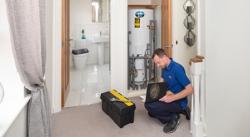 Why hot water cylinder commissioning is so important to get right?
Why hot water cylinder commissioning is so important to get right?
27 April 2021 Kingspan Water & Energy
Installing a hot water cylinder - you may have done it once, or you may have done it a thousand times. But what about commissioning?
In this month’s blog, we take a look at the differences between installing and commissioning a hot water cylinder, and why it’s so important to get the standards for both right.
What’s the difference between hot water cylinder installation and commissioning?
Commissioning is what comes after you’ve got a hot water cylinder all safely plumbed in and wired up, installed in line with the relevant Building Regs. In England and Wales these are Building Regulation G3, in Scotland the Technical Standard P3, and in Northern Ireland it’s Building Regulation Part F.
Like installing a cylinder, commissioning is a job for professional plumbing and heating engineers and definitely NOT for DIY-ers to try! Commissioning gets the hot water cylinder safely ready for action.
What does hot water cylinder commissioning involve?
There are a few variations to commissioning, depending if the cylinder is direct or indirect. Broadly, it involves purging the sterilisation liquid and filling the cylinder with water before flushing, filling, checking the water pressure, using a corrosion inhibitor, making sure the applicable heat source is working as it should and that water is stored at the right temperature, and checking all the safety valves, pipework and discharge pipework are all in tip-top shape.
Then there are two other important steps – completing a commissioning checklist (such as the Benchmark Code of Practice Scheme checklist, also referred to as a Benchmark Logbook) and notifying Building Control. More on both of these below.
What is the Benchmark Code of Practice Scheme?
A commissioning checklist needs to be completed to comply with the Building Regs. And why invent your own? There’s a great best practice commissioning checklist available from the Benchmark Code of Practice Scheme, run by the Heating and Hot Water Industry Council.
Some manufacturers, such as Kingspan, are members of the Benchmark Scheme. This means that as a plumbing and heating engineer you should install, commission and service Kingspan hot water cylinders in a way that’s Benchmark-compliant. This validates the guarantee.
The Benchmark Commissioning Checklist includes all the gubbins you’d expect – the make, model and serial number of the cylinder, the installer’s Unvented Registration Number, details of where the cylinder has been installed, details of primary circuits, temperature and pressure, etc.
Simply complete the checklist and leave it with the householder. It can also act as their subsequent cylinder servicing record.
Most of the manufacturers now include the Benchmark Commissioning Checklist within their Installation & Maintenance Instructions so make sure you don’t discard them as soon as you unpack the cylinder.
Why do Building Control need to be notified?
This is all about compliance with Building Regs. Unvented hot water cylinder installations need to be notified to Local Authority Building Control, which should be done by the installer either directly to the authority or through a Competent Persons Scheme. You’ll be pleased to hear that a qualified plumbing and heating engineer fits the bill as a competent person! A Building Regulations Compliance Certificate will then be issued to the householder. This includes a Notification Number for the householder to add to the Benchmark Commissioning Checklist.
Why is commissioning a hot water cylinder so important?
It may seem like there’s a long list to get through when commissioning. However, like all things, once you’re used to the method and the paperwork it’s a great way to show off your expertise and reputation for doing the right thing with customers.
After all, plumbing has a vital role to play in protecting public health – something we raise awareness of each year during the World Plumbing Day, which is celebrated on 11th March.
With so many variables that need checking, temperature of the stored water, incoming water pressure, system balancing and back flow prevention, and correct discharge pipe work configuration, to mention just a few, you shouldn’t underestimate the vital safety role you play every day.
As this blog has outlined, correct commissioning is important not only for the safe operation of the cylinder and to comply with Building Regs, but it also gives the householder confidence that standards have been followed and the cylinder will be covered by the manufacturer’s guarantee. That’s a whopping 25 years (10 years for heat pump models) for Kingspan’s unvented cylinders.
Where to find out more about commissioning
Whetted your appetite to find out more?
Manufacturer’s installation guides are a good source of information on commissioning, and you should definitely give them a read before you start a new installation.
Information about the Benchmark Scheme can be found on the Heating & Hot Water Industry Council website.
The Benchmark Scheme’s old website was centralheating.co.uk, but has now migrated to Installers First – make sure you sign up and sign in to access their resources, including Benchmark Checklists for various types of installations, including vented cylinders, gas boilers, solar thermal and heat pumps.
Interested in having your cylinder commissioned and activated?
Our expert engineers will carry out bespoke commissioning services on all Kingspan products, ensuring trouble-free system operation from the start. Areas of expertise include wastewater, rainwater harvesting systems, hot water cylinders, solar thermal systems and Fuel and AdBlue storage tanks.
For more information call our team today on 0333 240 6868, or visit our website.
How greener home heating systems provide new opportunities for installers
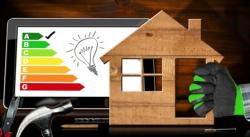 Andrew Ogden, Head of the Technical team at Kingspan Water & Energy, highlights how a decline in traditional home heating fuels combined with new legislation and the power of public opinion present new opportunities for heating engineers.
Andrew Ogden, Head of the Technical team at Kingspan Water & Energy, highlights how a decline in traditional home heating fuels combined with new legislation and the power of public opinion present new opportunities for heating engineers.
It’s no secret that the days of fossil fuels are numbered. The UK’s power stations are due to generate their last megawatt of coal in 2024 after providing only 1.33% of Britain’s energy in 2020; whilst wind power soared to 24.6%.
Staggeringly, looking back only ten years to 2010, those figures were 30.04% and 3.01% respectively.
The other fossil fuel behemoth, gas, has also seen a decline in the last decade, providing 46.92% of Britain’s energy in 2010 compared to 34.39% in 2020.
The public viewpoint has also evolved. Opinion polls taken in 2019 found that people believed the environment was the fourth most important issue facing the UK, and a record 80% of people said they were concerned or very concerned about climate change. Even the language has started to shift, moving from, “climate change” to a “climate crisis” or “climate emergency”.
Public opinion and the reduced focus on fossil fuels can all make the path to a carbon neutral UK more likely. But it’s legislation and incentives that will make the prospect a reality for many. For the plumbing and heating industry, the change will translate to more energy efficient domestic heating systems that offer reliability, control, and the levels of comfort people expect.
Here we’ll look in more detail at three areas where greener home heating systems have the potential to provide heating engineers with new market opportunities.
The new house build sector
We already know that new build homes will not be connected to the gas grid from 2025, as recommended by the Committee for Climate Change in their “UK housing: Fit for the Future?” 2019 report.
And then there’s future changes to Part L1A of the Building Regulations5, which mean the average home “will have 75-80% less carbon emissions than one built to current energy efficiency requirements.” Scheduled to come into force in 2025, this may yet move forward when the results of the 2019-20 Future Homes Standard consultation6 are published.
In addition, housebuilders themselves will have to meet future Standard Assessment Procedure legislation (SAP10)7 standards, which will place a major focus on energy-efficient heating systems as part of the overall SAP score that determines whether a new development gets planning permission in the first place.
For installers, the reality of these legislative changes is that technologies supporting lower carbon emissions, such as heat pumps, solar panels and the like will come to the fore. Housebuilders will be increasingly geared up to check installers’ credentials in these new technologies too, backed up by NHBC insurance requirements for those installing greener home heating systems to be registered with the Microgeneration Certification Scheme (MCS) and therefore be able to demonstrate proof of competence, such as an accredited training course.
Installers stalling over training and MCS registration could well end up being left behind by competitors who are carving a niche in this new market.
The domestic repair, maintenance and improvement sector
The home improvements sector has had a boost in 2020, with 65% of UK homeowners investing in renovations since lockdown, according to the 2020 Renovation Nation Report9.
Awareness of more energy efficient heating systems have also been boosted with the launch of the Green Homes Grant10 in England.
The Grant encourages landlords and homeowners to boost the energy efficiency of their property through a voucher scheme with approved installers and which can fund two-thirds of costs, up to £5,000.
Low carbon heating systems such as air source and ground source heat pumps feature prominently, as do additional secondary improvements such as insulation and thermostats for hot water tanks and heating controls. To be able to carry out work for the Green Homes Grant, installers need to be Trustmark and MCS registered.
For heating installers, the Green Homes Grant could provide immediate and future opportunities with homeowners and landlords who are looking for heating system upgrades in two ways. There are those who are ready to have improvements carried out between now and when the Grant ends in March 2021; and still more who will have now researched the types of low carbon heating system on offer with a view to the future, perhaps when new incentives are available.
The private and social rental sectors
Private and social landlords haven’t been left out in the drive towards greener home heating.
The Minimum Energy Efficiency Standards (MEES) for private sector landlords in England and Wales already state that rented properties should have a minimum of a Band E Energy Performance Certificate (EPC), enforceable by local authorities. A similar system is under consultation in Scotland.12
Standards will only increase, as the Government ambition is for EPC Band C to be the minimum requirement by 2030. Similarly, social housing – which accounts for 17% of the UK’s housing stock – has consultations and legislation geared towards meeting EPC Band C by 2030.
That means a lot of future work for heating installers, as over 12 million English and Scottish Homes are currently rated EPC Band D; and an additional 4 million Band E13. There’s a real opportunity for installers to build up relationships with landlords and letting agencies and pitch themselves as low carbon heating experts.
Summary
It remains to be seen whether the normalisation of greener energies in Britain’s homes will come from a desire to protect the planet or the need to comply with new legislation.
Regardless, Kingspan’s advice to heating installers would be to get ready now! By becoming MCS registered and having the knowledge to be able to advise on, install and maintain heat pumps, solar, or other low carbon heating systems, installers will be putting themselves in the best place possible to take advantage of future trends: no matter what inspired it.


